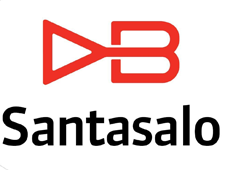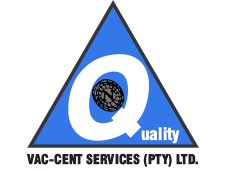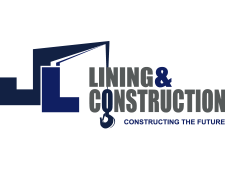FLSmidth: Cleaner, Greener Building Blocks of Life
FLSmidth is an international supplier of sustainable solutions and services to the global mining and cement industries. A long and distinguished history since 1882 is heading into a greener future courtesy of MissionZero, a monumental project to enable its customers to produce cement and process minerals with zero environmental impact by 2030.
Economic growth and urbanisation are driving increasing demand for cement and minerals in improved infrastructure, renewable energy options, electric cars and alternative energy.
“Minerals and cement are all around us,” FLSmidth points out, “and we play a key role in delivering sustainable productivity to the global mining and cement industries to support this.” The company is established around the globe and employs nearly 10,700 employees, spread across more than 60 countries.
“We are the market-leading supplier of sustainable technology, equipment, and service solutions,” FLSmidth declares. “Our core strengths and competencies are reflected in our market-leading technology, extensive product range, our ability to execute projects, and our unmatched services to mineral processing and cement plants worldwide.”
PRACTICE CHANGES PERCEPTIONS
Its longevity and many years of experience is what Deon de Kock, President Sub-Saharan Africa, Middle East & South Asia, believes gives FLSmidth an enviable vantage point to see ahead of the curve and construct a brighter, greener future.
“We are a global supplier to the mining and the cement industry,” de Kock outlines. “We’ve been in existence for over 135 years, so we have seen the signs of the times that have indicated that the green agenda, and green industrialisation, will become increasingly the reality for us and others in our space.”
The historic public perception of mining and cement is that of two major carbon culprits, he continues. “We were under real pressure in the recent past, say 10 to 15 years ago, when people viewed mining and cement as the biggest contributors to pollution and to carbon emissions.
“Interestingly, though, if you consider the increased demand for electric cars, wind turbines or battery minerals – all of which are needed for the green transition – most elements require copper, cobalt, lithium or nickel and also cement used in the foundation of huge wind turbines – which of course has to be mined and produced. Most of these commodities are actually in undersupply at present due to the high demand at this critical point in the transition.
“We provide sustainable productivity solutions to our clients so that they in turn can provide the copper, the battery minerals and the cement to drive the green agenda.”
This realisation of mining and cement working hand in hand with the green drive, has caused a big change of mindset across both the public and shareholders. “The question is not whether we will process minerals or produce cement, because these are so vital to achieving the progress we all want,” de Kock affirms. “The question is how fast we can transition the industries to produce it in a sustainable and clean manner.”
ZERO CARBON DRIVE
With growing populations, a larger middle class, and a transition to greener energy, the demand for cement and minerals will only increase in the next decade. “A more sustainable future requires action from the industries,” FLSmidth sets out. “With MissionZero, we take the lead in bringing these industries into a sustainable future.”
Announced in November 2019, its pioneering sustainability programme aims to provide zero-emission technology to the mining and cement industry. “Of course, we have our own ambitions with regards what we want to do, purely as FLSmidth, in terms of our operations becoming carbon neutral,” de Kock says.
“MissionZero is our sustainability ambition, enabling cement and mining customers to move towards zero emissions, 100% fuel substitution and zero water waste by 2030. Mission Zero is our unique value proposition – we look at water preservation, reducing water usage and carbon emissions as well as alternative energy and fuel sources, in order to reduce the impact on the environment. Our mission is to provide sustainable productivity solutions.”
Over its lifetime, FLSmidth has gained an unparalleled reputation around the globe for innovative thinking, highly-advanced technology and immense process knowledge across multiple industries.
“Apart from the increase in legislation and external pressure on us to drive this new agenda, from our own perspective and ambition, we also want to utilise our technology, experience and resources to create something as important as MissionZero,” de Kock outlines.
“Our own ambitions, sense of responsibility towards the environment and sustainable productivity solutions tie in well with the obligations of mining companies and cement producers of the future.”
These impressive words have been backed by a flurry of activity on FLSmidth’s part, firstly at Heidelberg Cement’s Norcem Brevik project in Norway. As an example, to support the green transition of cement, FLSmidth is providing the necessary plant modifications and equipment allowing for downstream CO2 removal. Final commissioning is scheduled for the first half of 2024.
Carbon capture is considered to be one of the key technologies in solving the CO2 emission challenges in hard-to-abate sectors, like cement. Heidelberg Cement’s Norcem Brevik plant is now prepared to become the first cement producer in the world to move from test into full-scale production after years of preparation together with FLSmidth and other technology providers.
Most recently FLSmidth was contracted to provide equipment to French cement producer, Vicat, at their site in France, to cut CO2 emissions by up to 16% in what is set to become Europe’s first full-scale clay calcination installation.
Replacing traditional, resource-intensive clinker is a key technology in eliminating traditional cement production’s environmental footprint, underlined Carsten Riisberg Lund, FLSmidth’s Cement Industry President. “The significance of this order cannot be underestimated; Vicat is setting a new standard for green cement in Europe.”
Carbon capture is another essential element in achieving a sustainable global cement industry, and FLSmidth recently partnered with UK-based Carbon8 Systems (C8S) to extend the reach of C8S’s carbon capture and utilisation (CCU) solution, already deployed by Vicat at its French plant.
“This agreement is a significant leap forward in our joint efforts to deliver on the sustainability ambitions for the global cement industry,” added Riisberg Lund. “The combination of C8S’ advanced carbonation technology and our extensive process knowledge will make a significant contribution to the cement industry’s Net Zero ambitions.”
Digitalisation is key to the success of this drive, de Kock rounds off. “The technology and products that we own, combined with digitalisation and our expertise, gives us the competitive advantage and makes us unique. The other players may have one or the other, but we have the whole package.”
DIGITAL KEY TO FUTURE
“Digital is the prerequisite for two crucial success criteria – productivity and sustainability,” opines FLSmidth’s Chief Digital Officer, Mikko Tepponen. “Our MissionZero sustainability ambition is simply not achievable without digital solutions and optimisation.”
At a time when energy costs, over-capacity and new environmental regulations are major concerns to many plant owners, digitalisation presents massive opportunities for the cement industry. At Kirene in Senegal, Chinese construction giant CBMI Construction ordered the supply and engineering of three complete control systems for two existing and one new cement line, citing FLSmidth’s combination of extensive process knowledge and digital solutions that integrate across different equipment suppliers.
“This order reaffirms our strong digital expertise,” assessed Jens Adler, General Manager in Group Digital at FLSmidth. “Digitalisation is transforming how many respond to increasing demands for emission reductions and efficiency, and is reflected in the emphasis on digital solutions as part of our MissionZero ambition.”
In Africa, meanwhile, FLSmidth has made headlines recently as the preferred provider of four large bolted thickeners, to achieve optimal water balance in a customer’s mineral processing plant.
“Most recently we have also been selected to supply six filter presses in India, for a big iron ore plant to optimise water usage, by means of water separation, preservation and recirculation,” says de Kock.
At the forefront is where FLSmidth has spent its lifetime, pioneering technology and initiatives to clean up the industry and increase productivity, and de Kock feels that we are on the brink of halcyon days for the company. “We are optimistic about mining prospects as a whole,” he wraps up, “as well as the growth and increased capacity that will be required on our part to support our clients in producing the commodities and cement which are very much in demand.
“Driven by urbanisation and global development propelling the need of base metals, we are seeing the dawn of a strong upward cycle for mining. It will happen, maybe not on the same scale as in 2008-2014, but it is definitely upon us.”




